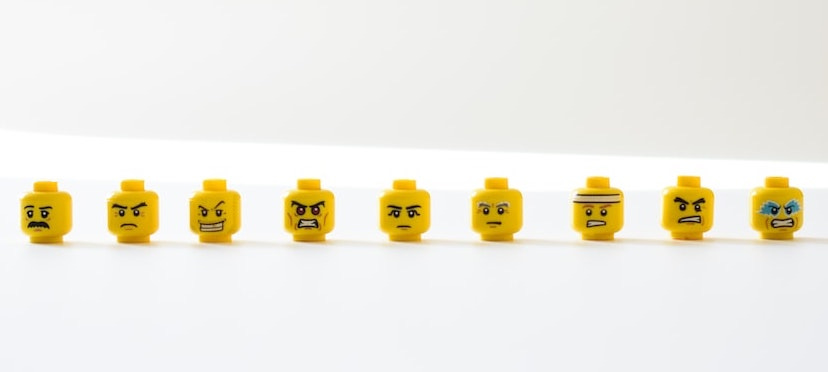The Industrial Outrage Complex
Outrage sells and no one knows that better than those taking full advantage of your outrage to profit directly. It’s never been a secret that content that evokes strong emotions is going to drive more engagement, but outrage is perhaps the most active one of all. A 2017 NYU study of over half a million tweets found that tweets using ‘moral-emotional’ words like evil or steal were more likely to go viral. You might like a cute puppy video, you might even share it, but anger is going to earn your fierce commentary. Hence, I use the term Industrial Outrage Complex*, which hungers for your fuming words. The more you share and interact, the more others react. Thus, there’s more engagement, powering a feedback loop, fueling the creation of more outrage porn, continuing the cycle.
*The Industrial Outrage Complex—as roughly defined by me—is a system that utilizes and amplifies outrage as a currency that’s used to help bolster/exploit the social and political impact and/or economic gains of for-profit media and political institutions.
The politicians get to grab on to this anger and build their campaigns on top of it and the media companies get endless content from your manipulated emotions. And the more they serve it up, the angrier you get. After all, the algorithms are showing you more and more outrage content. They show you more of what makes you mad and less of what makes you happy. They give you a skewed sense of reality by prioritizing the type of content that will engage you more, over the kind that will engage you less. And thus, the Industrial Outrage Complex thrives on.
Meanwhile, you get angrier and more desensitized. You like people less. It’s easier to dehumanize others. The world seems worse. Your views and positions become more extreme. You react quicker and less rationally. You probably become a worse person, frankly.
Outrage erases nuance. It requires podcast hosts and media personalities to put on a performance of sorts. The most popular amongst them come in the strongest, full of conviction. There’s no balanced, middle ground, weighing of arguments. That doesn’t sell.
Anger as an emotion is real and raw. But too often we are manipulated by some other forces into feeling it. The feeling itself might be authentic, but we are puppets on a string. The puppeteers, however, are more often than not dishonest manipulators. They know what they are doing and they know exactly how to be effective. They know which tweet will start a flame war, or earn them follows—they have the metrics to track it. They know which topics to bring up on their shows, that’s why they consistently milk them even though there are more important issues to discuss that affect people’s lives more profoundly and directly.
The Industrial Outrage Complex isn’t there to serve society, it is there to line the pockets of its masters and to service their goals. For political consultants, getting people mad is profitable business.

Perhaps, too, there’s some echoes here of how more than 1,000 years ago in parts of Europe, masses would gather around to hurl rotten food and insulting words at the heads of those who violated the moral codes of their society. It was seen as having some value: Setting the standards for our society. (The practice of pillory was eventually outlawed as it was seen as being too cruel). But then, it was never monetized. Now, it’s part of our economic system, in addition to being a political weapon.
Outrage or anger does have a role. It can be a motivating force for change. It can be a way to stand up to injustice and wrongs. But it’s one thing when it comes organically from the people, and another when it is a matter of top down manipulation.
Part of the trouble with the social platforms is that influential accounts use them primarily to broadcast or speak, rather than listen or engage. And even regular accounts tend to follow this model when they are in a heightened state of emotion. Instead of having conversations, we have shouting matches designed to ‘win.’
We often talk about how we must “touch grass” and distinguish the online or media world from the ‘real world,’ but given how much time we spend plugged in, are they really so separate?
So what’s the solution? What’s the antidote to the Industrial Outrage Complex?
The problem is complex and multi-faceted, but there are some things we can do. As they say in AA, the first step is admitting that we have a problem.
So let’s go ahead and admit it. We have a problem. So now let’s find the courage (and wisdom) to change the things we can:
This means being more critical of the information that we consume and more skeptical of the motivations behind it. We should be asking ourselves why a particular piece of content is being presented to us and what the agenda of the person or organization behind it might be. Is the problem being highlighted really as critical and important to the lives of individuals as it’s being presented, or is it designed to maximize a certain reaction?
It’s important for us to slow down when we engage with content that provokes emotional reactions within us. Consider why it gets us so upset. Take some time to process it and not respond as quickly. Slowing things down allows us to think over our emotions and not be slaves to them.
Before posting a response, or sharing thoughts, also consider: Why do you want to share them? What do you hope to bring or add to the conversation? What do you want to accomplish? Is there anything you’d like to learn? What’s going to be the most useful response in serving your goals? Just asking yourself these question will make a significant difference.
At the end of the day, our politicians, algorithms, and media outlets are a reflections of us to an extent—our best and our worst. We need to learn how to engage differently. We need to expect more. We need to push back against politicians who use outrage as a political tool, and support those who are willing to engage in thoughtful, constructive debate. We need to move away from the ‘personalities’ who seek to enrage us and work to balance the content we view on social media and traditional media so that we’re not always responding to negative outrage content, but are also inviting positive, uplifting, thoughtful, nuanced, and educational content of substance into our lives.
Ever heard the phrase: “You are what you eat?” Well, the same applies here. We need to become master curators. Do not feed the trolls.
☕️ Want to support my work by making a donation and buying me a coffee? Here’s how.
NOTICE TO READERS: Thank you for keeping me company. Although I try to make many posts public and available for free access, to ensure sustainability and future growth—if you can—please consider becoming a paid subscriber. In addition to supporting my work, it will also give you access to an archive of member-only posts. And if you’re already a paid subscriber, THANK YOU. Please also share, like, and comment. Got ideas for future posts? Email me.
Enjoy FREE Premium Membership for a Week! Sign up.
(Header photo by Nik)
Who am I? I’m a writer with an overactive imagination and a random mind. Outside of Substack, you’ll find my work in publications such as Newsweek, WIRED, Variety, The Washington Post, The Guardian, Esquire, Playboy, Mashable, CNN Travel, The Independent, and many others.





What you are proposing is critical thinking...something that is not taught in schools and something that most people are too lazy to accomplish! It requires educating oneself to both sides of the argument and empathy for the other side of the argument. Unfortunately main stream media and social media are more concerned about number of clicks and followers. I’m sad for our society and not very hopeful that we will be able to correct course and become accepting and respectful of all points of view.
The commercialization of hate has become a more significant and dangerous problem since the widespread use of the "fake news" label. In the past, cognitive dissonance served as a corrective force in our culture. When people were confronted with evidence that contradicted their core beliefs, they would have to either deny it or change their beliefs to conform to the new reality. However, since any information can now be dismissed as "fake news," this corrective force is significantly weakened.
We live in a post-truth world, which feels like navigating a minefield. Moreover, outrage fatigue is a real issue. People who would otherwise push back against racism and xenophobia have grown weary and left the playing field.
It's worth noting that both extreme right and extreme left news outlets engage in disinformation and information manipulation to keep their audience angry and emotionally invested. This, in turn, enables them to sell ads at a premium. However, the far right and far left are not the same. The far right uses outright lies, whereas the far left selectively presents the truth.